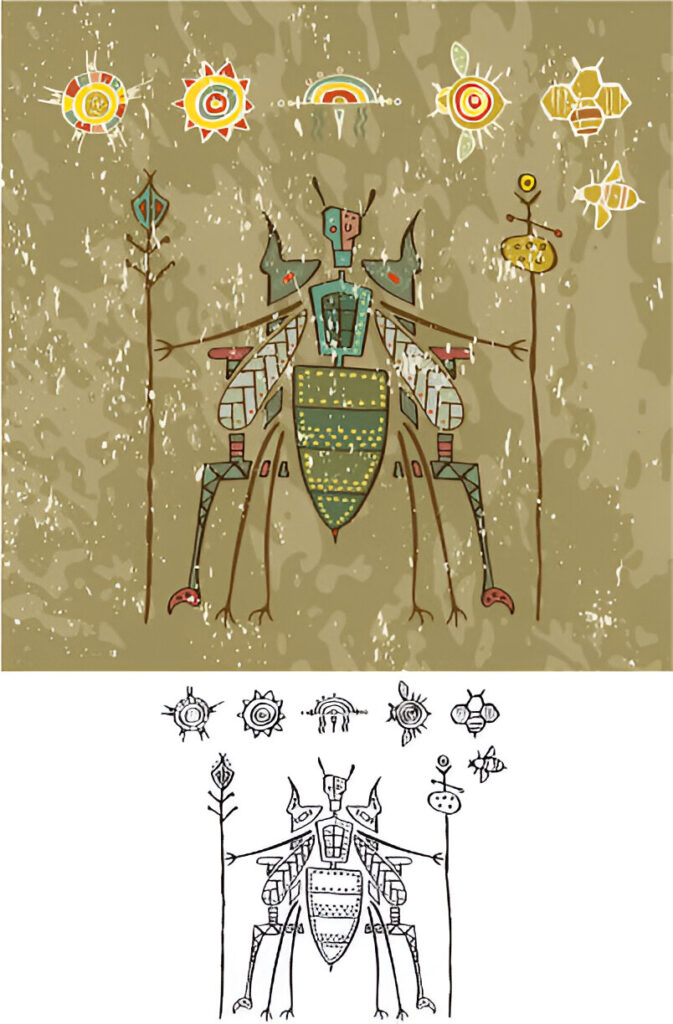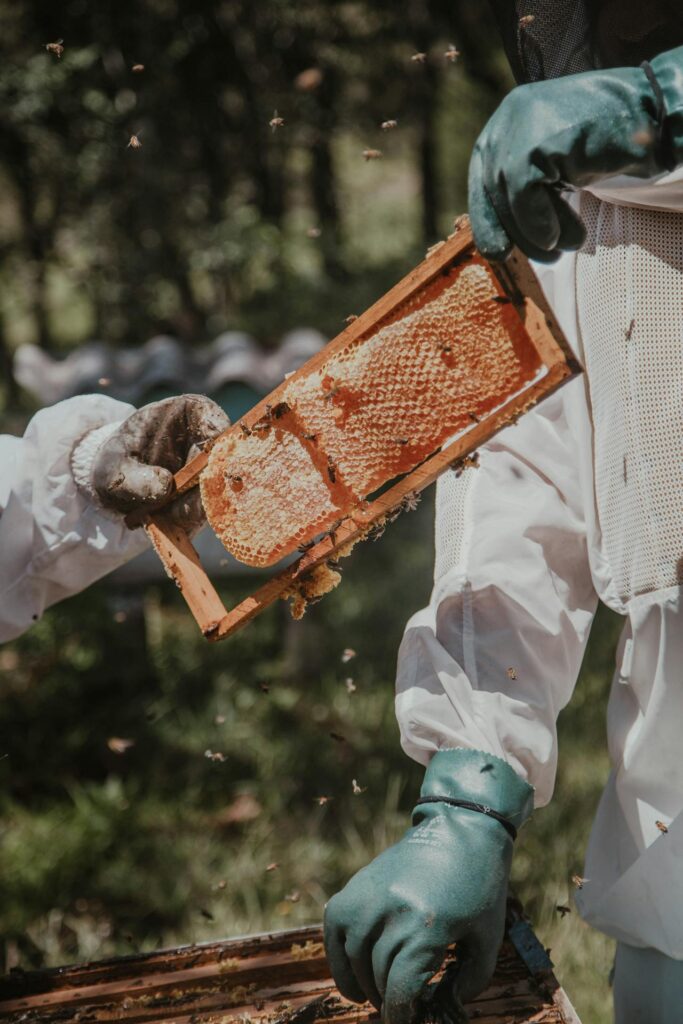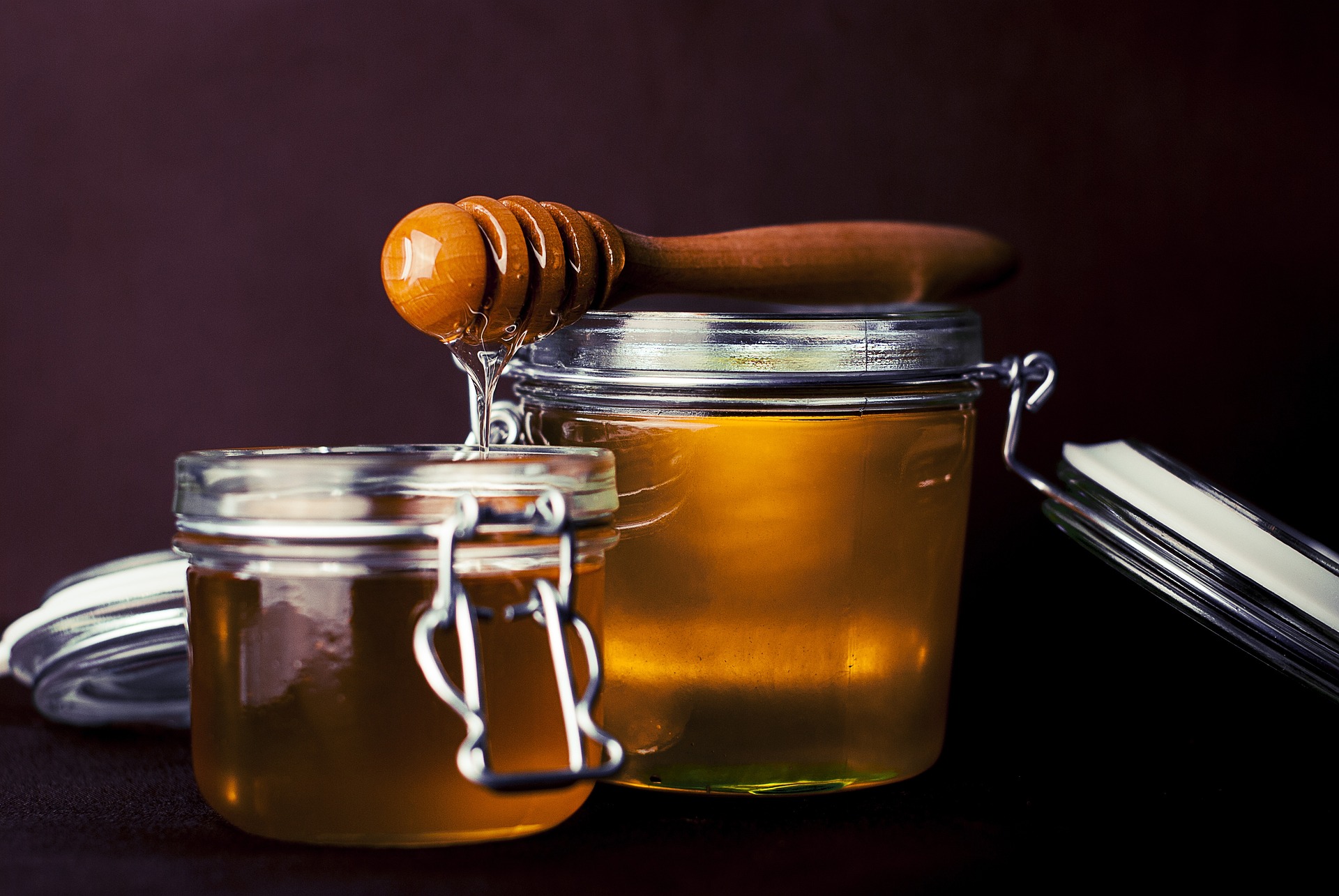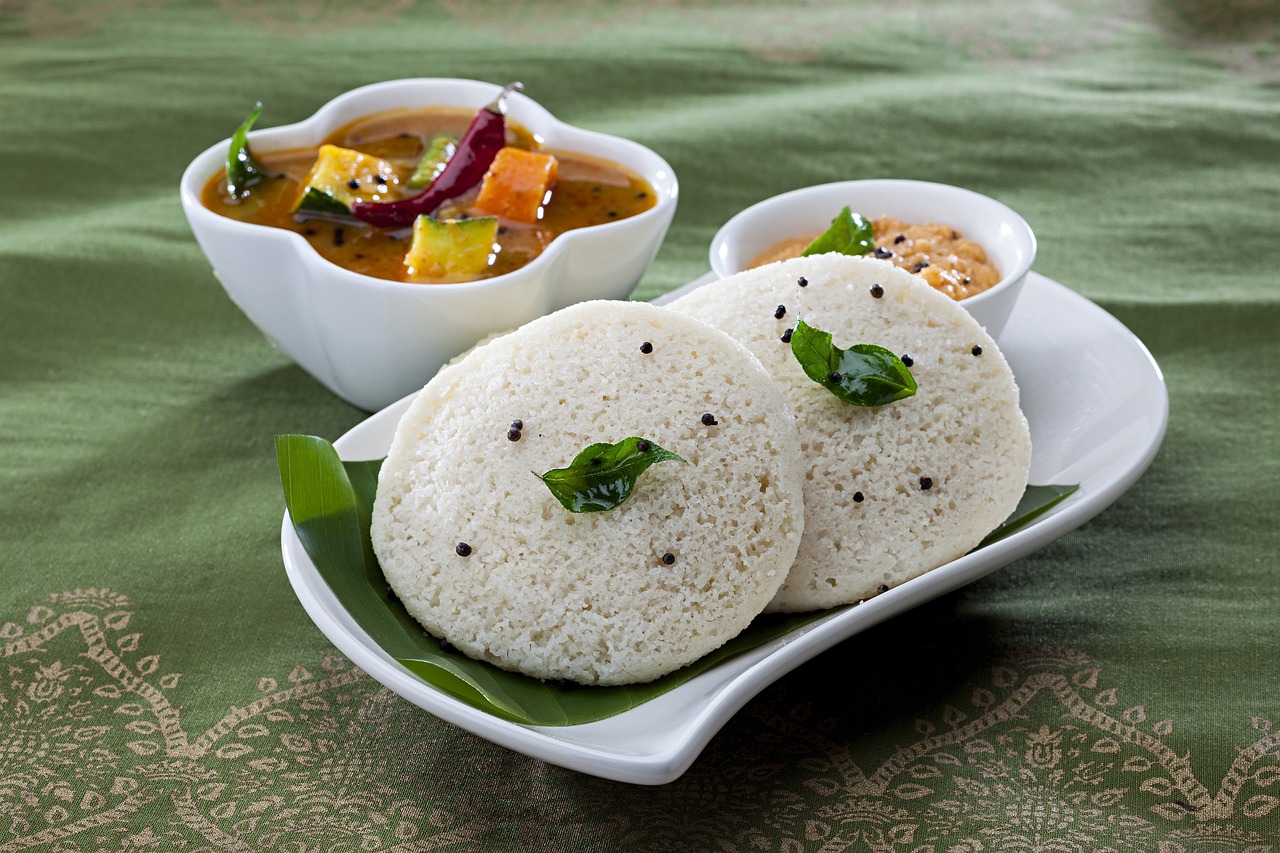The Sweet Story of Honey: Origin and Its Journey to India
When British attacked the eastern coast of present-day Odisha state in 1842–49, the Kondha tribe is noted to have used tamed bees against them. But little is known about the techniques used by them for taming.
90s kids can relate to Winnie the Pooh and how iconic he was, but there’s also something he always cherished—honey. This golden, sweet substance has a fascinating history that spans thousands of years and has made its way into various cultures, including India’s. Let’s dive into the origin of honey and its rich history in India.
Origin of Honey
Honey has been a cherished food since ancient times, with evidence of its use dating back to the Stone Age. Early humans gathered honey from wild bee nests, a practice depicted in prehistoric cave paintings in Spain, estimated to be around 8,000 years old. Ancient civilizations, such as the Egyptians, Greeks, and Romans, highly valued honey not only as a sweetener but also for its medicinal properties.
Ancient Egypt
- Honey was used in religious rituals, as a sweetener, and in medicinal preparations. It was even found in the tombs of pharaohs.
Ancient Greece
- Greeks believed honey was a gift from the gods, with references to it in mythology and its use in various health remedies.
Ancient Rome
- Romans used honey extensively in cooking and as a preservative, appreciating its long shelf life and antibacterial properties.
Honey’s Origins in India
India has a long and independent history of beekeeping and honey consumption. References to honey can be found in ancient Indian scriptures, indicating its use and significance for thousands of years.
Vedic Period
- Honey (known as “Madhu”) was considered one of the five elixirs of immortality. It was used in various rituals and Ayurvedic medicine.
Ayurveda
- Honey is a crucial ingredient in many Ayurvedic formulations, valued for its healing properties and as a natural preservative.
Buddhist Scriptures
- Honey is also mentioned in Buddhist texts, highlighting its importance in both daily life and spiritual practices.
Honey in Indian Culture
In Indian culture, honey is more than just a sweetener. It holds significant cultural and religious importance. During festivals like Makar Sankranti, honey is used in traditional dishes and offerings. In many households, honey is a staple in home remedies for ailments like coughs and colds.
Honey in Folklore: Tales from Ancient Egypt and Buddhist Traditions
The Sacred Honey Bee in Ancient Egypt
In ancient Egypt, honey and bees held a place of deep reverence and symbolism. The honey bee was more than just an insect; it was a royal emblem used by pharaohs between 3000 B.C. and 350 B.C., symbolizing life, birth, death, and resurrection.
The Egyptians believed that bees were born from the tears of Ra, the sun god. According to myth, these divine tears fell from Ra’s face and transformed into bees, delivering heavenly messages and performing sacred duties on Earth. Honey played a crucial role in guiding the dead to the afterlife. Egyptians often placed honey, bees, beehives, and bee relics among the gifts for the deceased, signifying its sacred role in life and death.

The Buddhist Tale of the Honeycomb
In Buddhist traditions, honey also holds a special place, especially celebrated during the Madhu Purnima, or Honey Full Moon Festival, in South and Southeast Asia. This festival, observed on the full moon of the 10th lunar month, is rooted in a touching legend from the life of Buddha.
According to the legend, during Buddha’s retreat in the Parileyya forest, a monkey offered him a honeycomb while an elephant brought fruit. Buddha graciously accepted the honeycomb, which led the monkey to leap from tree to tree in jubilation. Tragically, the monkey fell to his death, but due to his generous act, he was immediately reborn in the heavenly realm of Tavatimsa.
To commemorate this event, Buddhists celebrate Madhu Purnima by bringing gifts of honey and fruit to shrines and monasteries, symbolizing unity and charity.
These captivating stories from ancient Egypt and Buddhist traditions highlight the profound cultural and spiritual importance of honey. From the divine bees of Egypt to the heartwarming tale of the monkey’s gift to Buddha, honey has been cherished and revered across civilizations.
Beekeeping 101: Starting Your Own Beekeeping Adventure
Reading so much about honey and its importance not only in Indian culture but in other cultures may put you in a thought: if honey is so popular, can I start my own beekeeping? Well, worry not, because starting your own beekeeping venture is possible, although it comes with its own set of challenges and considerations.
Can You Start Your Own Beekeeping?
Yes, you can start your own beekeeping, but it’s important to be well-prepared and informed about the requirements and potential challenges. Here are some key factors to keep in mind:
Key Considerations for Beekeeping
- Shelter and Hive Location:
- Ensure that the hives are placed in a sheltered area, protected from strong winds and extreme weather conditions.
- The location should have good air circulation but also provide some shade to prevent overheating.
- No Pesticides:
- Avoid using pesticides near the hives, as they are the number one killer of bees. Opt for organic and bee-friendly pest control methods.
- Floral Sources:
- Bees need a constant supply of nectar and pollen, so it’s essential to have a variety of flowering plants nearby. Ensure that there are blooming flowers throughout the seasons to support the bees’ diet.
- Open Area and Sunlight:
- Hives should be placed in an open area with access to direct sunlight for at least part of the day. Sunlight helps regulate the temperature inside the hive and keeps the bees active.

Challenges in Beekeeping
- Disease and Pests:
- Bees are susceptible to various diseases and pests, such as Varroa mites and foulbrood. Regular monitoring and preventive measures are crucial.
- Climate and Weather:
- Extreme weather conditions, such as excessive heat or cold, can affect bee health and productivity. Proper hive management and insulation are necessary to protect the bees.
- Colony Collapse Disorder:
- This phenomenon, where entire colonies disappear, remains a significant challenge for beekeepers. Research and staying updated on best practices can help mitigate its impact.
Growth of the Indian Honey Market
India is the 6th largest producer of honey, accounting for 3.5% of global production. During the last decade, India’s exports of honey proliferated from US$ 56.2 million to US$ 100.8 million, experiencing a growth rate of 6.5% per annum, which is higher than the world’s average growth rate. This impressive growth reflects the increasing demand for Indian honey in the global market and presents a lucrative opportunity for aspiring beekeepers.
Conclusion: The Sweet Journey of Honey Continues
In this article, we’ve explored the fascinating origin of honey and its deep-rooted significance in various cultures. We delved into how honey was revered in ancient Egypt, where it was considered a divine substance created from the tears of Ra, the sun god, and used as a symbol of life, birth, death, and resurrection. We also uncovered the heartwarming Buddhist tale of the Honey Full Moon Festival, where honey played a pivotal role in a legend involving Buddha. Additionally, we touched on the Vedic importance of honey in India, highlighting its cultural and medicinal uses throughout history.
We’ve also discussed the basics of starting your own beekeeping venture, emphasizing the need for proper shelter, avoiding pesticides, ensuring a supply of flowering plants, and placing hives in open areas with sunlight. The challenges of disease, pests, and climate were also considered, along with the impressive growth of the Indian honey market, making it a promising endeavor for aspiring beekeepers.
But rest assured, the topic of honey is far from finished. In our upcoming article, we’ll delve into why honey is hailed as the best sweetener, exploring its health benefits, versatility, and why it stands out among other sweetening options.
Follow for more Tales and Tadka – Until next time.





